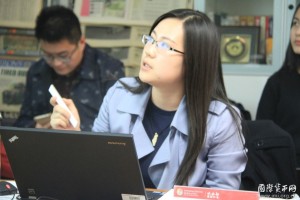Macro-Finance Salon (No. 52): Deleveraging Experience in the World's Major Developed Countries
2017-03-17 IMI Next, Luo Yu introduced and evaluated the calculating method of economic leveraging in China's various sectors. He pointed out that the problem in China's leverage was somewhat different. In China, non-financial enterprises, especially those industries with high energy consumption, high pollution and overcapacity, had a higher leverage rate. Finally, Luo Yu shared the international experience in deleveraging from these aspects such as the determination of a reasonable leverage level, the relationship between cutting overcapacity and deleveraging in corporate sectors, the endurance capacity of financial sectors in deleveraging, the bottom line of financial rescue in the process of deleveraging, the space of adding leveraging in the residents sector.
Zhang Yu, a macroeconomics researcher at Minsheng Securities Research Institute, made comments centering several clear trends of the current macro level. She pointed out that the trend was very obvious in the new round of U.S. government adding leverage, the short-term boost of American economy, the deleveraging of Chinese financial sectors and the space of adding leverage for residents sector, but the amplitude of fluctuation was still uncertain. The condition of domestic and foreign deleveraging was very different in derivatives, financial supervision, non-performing assets, bankruptcy, etc, so China needed to create a better deleveraging environment. Zhang Yu also raised some problems worth thinking about, such as the ceiling of U.S. public debt, the balance between cutting capacity and unemployment tolerance and the standard of evaluating zombie enterprises.
Next, Luo Yu introduced and evaluated the calculating method of economic leveraging in China's various sectors. He pointed out that the problem in China's leverage was somewhat different. In China, non-financial enterprises, especially those industries with high energy consumption, high pollution and overcapacity, had a higher leverage rate. Finally, Luo Yu shared the international experience in deleveraging from these aspects such as the determination of a reasonable leverage level, the relationship between cutting overcapacity and deleveraging in corporate sectors, the endurance capacity of financial sectors in deleveraging, the bottom line of financial rescue in the process of deleveraging, the space of adding leveraging in the residents sector.
Zhang Yu, a macroeconomics researcher at Minsheng Securities Research Institute, made comments centering several clear trends of the current macro level. She pointed out that the trend was very obvious in the new round of U.S. government adding leverage, the short-term boost of American economy, the deleveraging of Chinese financial sectors and the space of adding leverage for residents sector, but the amplitude of fluctuation was still uncertain. The condition of domestic and foreign deleveraging was very different in derivatives, financial supervision, non-performing assets, bankruptcy, etc, so China needed to create a better deleveraging environment. Zhang Yu also raised some problems worth thinking about, such as the ceiling of U.S. public debt, the balance between cutting capacity and unemployment tolerance and the standard of evaluating zombie enterprises.
 In the Q&A session, the audience raised some questions, such as the profit source of the financing circulation chain and the interbank certificate circulation chain, the relationship between the liabilities and the leverage ratio of the financial institutions, the applicability of the leverage transfer strategy in China, the influence of the shadow bank on M2, etc.
In the Q&A session, the audience raised some questions, such as the profit source of the financing circulation chain and the interbank certificate circulation chain, the relationship between the liabilities and the leverage ratio of the financial institutions, the applicability of the leverage transfer strategy in China, the influence of the shadow bank on M2, etc.
